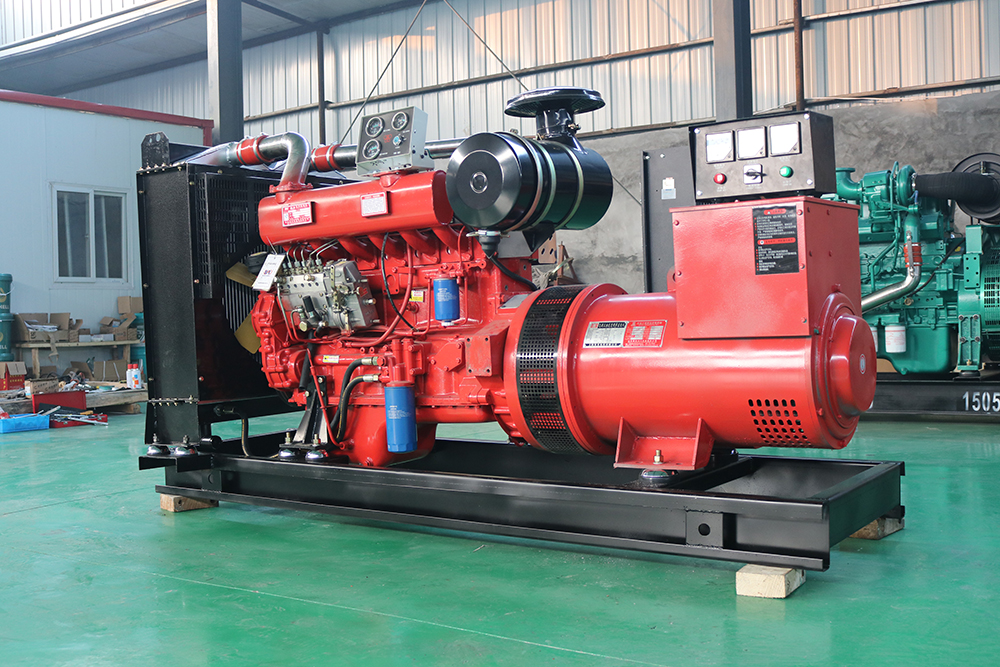Introduction
Construction sites are dynamic and ever-changing environments that require a reliable source of power to operate efficiently. Diesel generators have long been a staple in the construction industry, providing a portable and dependable power solution for a wide range of equipment and tools. In this article, we will explore the importance of diesel generators on construction sites, their key features, benefits, maintenance tips, and environmental considerations.
Importance of Diesel Generators on Construction Sites
Construction sites are often located in remote areas or areas with limited access to the power grid. In such cases, diesel generators play a crucial role in providing a consistent and uninterrupted power supply to run essential equipment such as power tools, lighting, pumps, and HVAC systems. These generators are also used to power temporary facilities like job site trailers, offices, and safety equipment, ensuring that the construction project runs smoothly and efficiently.
Key Features of Diesel Generators
Diesel generators come in various sizes and power capacities to meet the specific needs of construction sites. They are designed to be rugged and durable, capable of withstanding harsh weather conditions and heavy-duty use. Some key features of diesel generators include:
1. Portability: Diesel generators are typically mounted on skids or trailers, making them easy to transport and set up at different locations on a construction site.
2. Power Output: Diesel generators are available in a wide range of power outputs, from small portable units suitable for powering a few tools to large industrial units capable of running multiple pieces of equipment simultaneously.
3. Fuel Efficiency: Diesel generators are known for their fuel efficiency compared to other types of generators, making them a cost-effective option for long-term use on construction sites.
4. Durability: Diesel generators are built to withstand rough handling and extreme conditions, making them a reliable power source in the challenging environment of a construction site.

Benefits of Using Diesel Generators on Construction Sites
There are several benefits to using diesel generators on construction sites, including:
1. 500kw diesel generator for remote industrial applications : Diesel generators are known for their reliability and durability, providing a consistent power supply even in the most demanding conditions.
2. Cost-Effectiveness: Diesel fuel is generally less expensive than gasoline or natural gas, making diesel generators a cost-effective option for powering construction sites.
3. Versatility: Diesel generators can be used to power a wide range of equipment and tools, making them a versatile solution for construction projects of all sizes.
4. Longevity: Diesel generators are built to last, with many models designed to operate for thousands of hours before requiring major maintenance or replacement.
5. Safety: Diesel generators are equipped with safety features such as automatic shut-off systems and overload protection, ensuring the safety of workers and equipment on the construction site.
Maintenance Tips for Diesel Generators
To ensure the optimal performance and longevity of diesel generators on construction sites, regular maintenance is essential. Some key maintenance tips include:
1. Regular Inspections: Conduct regular visual inspections of the generator, checking for signs of wear and tear, leaks, or damage.
2. Fluid Checks: Monitor the levels of fuel, oil, and coolant regularly and top up as needed to prevent damage to the generator.
3. Filter Changes: Replace air and fuel filters at the recommended intervals to ensure proper engine performance and efficiency.
4. Load Testing: Periodically test the generator under load to ensure it can handle the power requirements of the construction site.
5. Professional Servicing: Schedule regular servicing by a qualified technician to identify and address any potential issues before they escalate.
Environmental Considerations
While diesel generators are a common and reliable power source for construction sites, they do have environmental impacts that should be considered. Diesel fuel combustion produces emissions such as nitrogen oxides (NOx), particulate matter, and carbon monoxide, which contribute to air pollution and can have negative health effects on workers and surrounding communities. To mitigate these impacts, construction companies can take the following steps:
1. Use Cleaner Fuels: Consider using biodiesel or low-sulfur diesel fuel to reduce emissions and improve air quality.
2. Proper Ventilation: Ensure that diesel generators are placed in well-ventilated areas to minimize exposure to exhaust fumes.
3. Emission Controls: Install emission control devices such as catalytic converters or diesel particulate filters to reduce harmful emissions from the generator.
4. Compliance with Regulations: Stay informed about local environmental regulations and ensure that diesel generators are operated in compliance with air quality standards.
Conclusion
Diesel generators are an indispensable power source for construction sites, providing a reliable and versatile solution for powering equipment, tools, and temporary facilities. By understanding the key features, benefits, maintenance tips, and environmental considerations of diesel generators, construction companies can optimize their use and minimize their environmental impact. With proper care and attention, diesel generators can help construction projects run smoothly and efficiently, ensuring the successful completion of projects on time and within budget.
